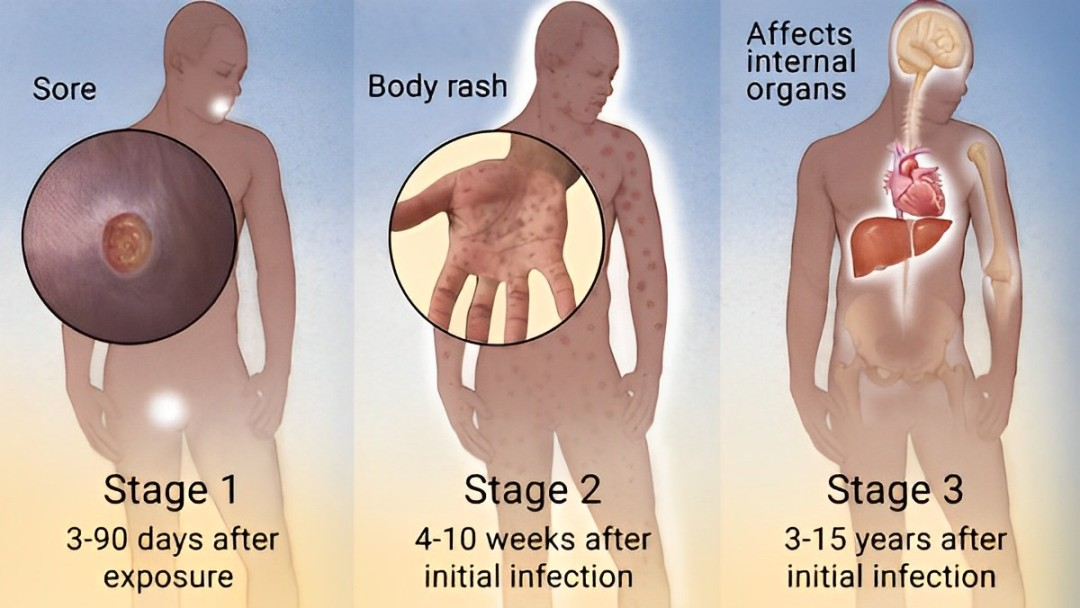Syphilis: Understanding its Symptoms, Causes, Diagnosis, and Treatment
In this comprehensive piece of content, we will lay our eyes on the symptoms, diagnosis, as well as treatment options for syphilis.
For those of you who don’t know, Syphilis is a sexually transmitted infection (STI) that is caused by the bacterium Treponema pallidum. This can have serious consequences if it is left untreated. Early detection and the best treatment for syphilis are key to managing the infection effectively.
According to the World Health Organization (WHO), approximately 6.3 million new cases of syphilis are encountered all across the globe every single year. Plus, the Centers for Disease Control and Prevention (CDC) reported more than 130,000 cases of syphilis in the United States, with the rate increasing every single year. In addition, congenital syphilis rates have also been rising, with almost 1,000 cases reported in the United States.
In this comprehensive piece of content, we will lay our eyes on the symptoms, diagnosis, as well as treatment options for syphilis.
Symptoms of Syphilis
Syphilis progresses through several stages and every single stage has its own set of symptoms. However, it is extremely important to note that every single individual will not experience syphilis disease symptoms, especially during the initial stages.
With that being said, here are some of the common symptoms that are associated with every stage of syphilis.
Primary stage
- Small, painless sores, i.e., chancres appear at the site of infection, typically on the genitals, anus, or mouth.
- Those sores probably heal on their own within a couple of weeks, even without any sort of treatment, leading to a false sense of resolution.
Secondary stage
- Patchy hair loss, headaches, weight loss, and muscle aches.
- Sore throat, fever, swollen lymph nodes, and fatigue.
- Skin rash that probably appears as rough, red, or reddish brown spots on the palms of their hands as well as soles of the feet.
Latent stage
- The infection persists in the body with no visible symptoms.
- This stage can last for a couple of years, with the potential for the infection to progress to the tertiary stage if it is left untreated.
Tertiary stage
- Symptoms may include paralysis, difficulty coordinating muscle movements, blindness, numbness, plus dementia.
- Damage several organs as well as tissues, including the brain, heart, eyes, nerves, liver, and bones, in addition to joints.

Source: irvineskin
Congenital syphilis
- Syphilis can be passed from a pregnant woman to her unborn child. This leads to congenital syphilis.
- Babies who are born with congenital syphilis probably experience a plethora of symptoms such as fever, rash, anemia, jaundice, enlarged liver and spleen, as well as developmental delays.
Causes of Syphilis
Syphilis is primarily spread through sexual contact with an infected person. However, this disease can be transmitted from mother to fetus during childbirth or pregnancy. The bacterium Treponema pallidum enters the body through mucous membranes or breaks the skin during sexual activity with an infected individual.
Syphilis disease causes include the following:
- Having a history of other sexually transmitted infections (STIs)
- Unprotected sex, including anal, vaginal, or oral sex with an infected partner.
- Multiple sexual partners or engaging in high-risk sexual behaviors.
Diagnosis of Syphilis
Diagnosis of sexually transmitted diseases syphilis typically involves a combination of medical history, laboratory tests, as well as physical examination. Healthcare providers may perform the following tests to diagnose syphilis.
- CSF Analysis: A cerebrospinal fluid (CSF) analysis will probably be performed for the detection of bacterium presence in the central nervous system in individuals with suspected neurosyphilis.
- Darkfield Microscopy: A sample of fluid from a syphilis sore (chancre) may be examined, in some cases, under a microscope. This helps to detect the presence of Treponema pallidum bacteria.
- Blood Tests: Blood tests, such as treponemal and nontreponemal tests, are commonly utilized for the detection of antibodies that are produced by the body in response to a syphilis infection.
Treatment of Syphilis
Syphilis is typically treated with antibiotics, which can effectively cure the infection as well as prevent further complications. The choice of antibiotic plus duration of treatment depends on the stage of syphilis along with the presence of any complications. Effective Syphilis treatment online is also available, especially for those individuals who do not want to wait in line for consultations or appointment scheduling.
Commonly used antibiotics for syphilis treatment include the following:
- Doxycycline or Tetracycline: This can be prescribed as an alternative antibiotic for individuals who are allergic or can’t tolerate penicillin.
- Penicillin: It is the preferred treatment for syphilis, plus it is typically administered as a single injection for early-stage syphilis. A longer course of treatment is probably necessary for individuals with late-stage or neurosyphilis.
- Follow-Up Testing: Follow-up testing is essential after completing treatment to make sure that the infection has been successfully treated. This may involve repeated blood tests for the monitoring of antibody levels over time.
Prevention of Syphilis
Are you wondering if syphilis is a curable disease? Well, yes, definitely. Preventing syphilis involves practicing safe sex as well as taking preventive measures in order to reduce the risk of infection.
Following are some of the key prevention strategies that you should surely be familiar with:
- Prenatal Care: Those individuals who are pregnant should receive routine prenatal care. This includes screening for syphilis, which helps prevent transmission of the infection to the unborn child.
- Regular Testing: It is important to undergo regular sexually transmitted infection (STI) testing including for syphilis for early detection plus treatment.
- Limiting Sexual Partners: Limiting the number of sexual partners as well as selecting partners who have been tested for STIs can aid in reducing the risk of syphilis.
- Utilization of Condom: Consistently plus correctly using condoms during sexual activity can reduce the risk of syphilis transmission.
- Abstinence: Without a doubt, the most effective way to prevent syphilis and other sexually transmitted infections (STIs) is to abstain from sexual activity.
Conclusion
The short version of the story is that syphilis is a serious sexually transmitted infection (STI) that can lead to severe health conditions if left untreated. To effectively manage this infection, it is important to recognize the symptoms, identify the causes, and seek prompt diagnosis and treatment. It is essential that individuals practice safe sex, undergo regular STI testing, as well as take preventive measures to avoid syphilis and protect their sexual health.
It is crucial to consult with a professional healthcare provider for evaluation and testing if you suspect that you probably have syphilis or have been exposed to the infection. Keep in mind that early detection and treatment are key to preventing complications plus reducing the spread of syphilis within communities. Hence, syphilis can be effectively treated with timely intervention in addition to appropriate care. This allows individuals to maintain their health as well as well-being.
Get syphilis treatment online via a reliable platform AlphaCare Inc. Sign up now!
TAGS:
best treatment for syphilis sexually transmitted diseases syphilis syphilis disease symptoms syphilis disease causes is syphilis a curable disease get syphilis treatment online


